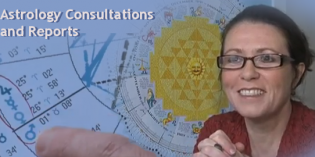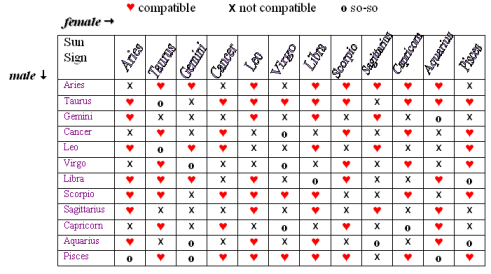Eclipses – Solar & Lunar
An Eclipse always occurs at the point where the Moon’s orbit around Earth intersects the ecliptic, the ‘path’ of the Sun around the Earth.When the Moon passes between the Earth and the Sun and effectively blocks the light of the Sun a solar eclipse occurs. When the Earth blocks the light of the Sun falling onto the Moon’s surface a lunar eclipse occurs.
An eclipse affects any planet, angle or node it comes into contact with. It may put some aspect of life into the dark while highlighting another area requiring attention. Eclipses are especially important when affecting the Ascendant, as this angle is representative of the general well being. If it falls on the Ascendant then partnerships will also be affected. The same is true of an eclipse on the Midheaven; apart from affecting career and public status, family issues will also arise. Eclipses also affect the affairs of the house they are in. Falling on a planet, they show hurt or harm regarding whatever that planet signifies. Eclipses can bring positive benefits in serving to focus on an area that may have been neglected therefore ensuring that necessary action is taken.
A Solar Eclipse, which occurs at the time of the new moon, is seen as a new beginning being brought about by radical change. A Lunar Eclipse occurs at the time of the full moon when the sun and moon are in opposition to each other. They are at the point of maximum stress and represent the culmination of events, a catalyst for dramatic change based on previous experience.
The effects of a Lunar Eclipse can last for months and that of a Solar Eclipse can last for years. A Solar Eclipse is like a delivery of seeds, or a delivery of raw cosmic power. In proportion to the duration of the eclipse, the seeds will grow into a full plant at a later time, eg. Solar Eclipse 19th March 2007 – total duration: 3 hours 46 minutes. Refer to Ptolemy’s Tetrabiblos for this approach to eclipses.
NOTE (for cities & countries):
Eclipses are most noticeable in their effects when they are both 1) visible in the location and 2) the location is ruled by the sign in which the eclipse occurs.
Looking at your yearly transits with a personalised Consultation They can also reveal where the eclipses fall in your chart, the possible effects, and how long they are likely to last.










Connect
Connect with us at Facebook and Pinterest